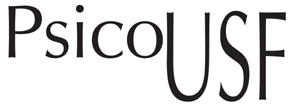Abstract
The present study is a cross-sectional web-based survey conducted in Brazil aiming to describe how individual differences in temperament traits and types could predict the use of the following eight categories of complementary and alternative medicine (CAM): yoga, meditation, reiki, acupuncture, massage, tai chi chuan, homeopathy, and flower remedies. The sample consisted of 22,415 individuals, 69.5% of whom were women, with a mean age of 28.8 years (SD= 9.1). The most commonly used practices were massage and yoga and the variables sex, age, income, and psychopathological diagnosis throughout life were associated with all practices, except tai chi chuan. The inferential analysis relied on logistic regressions and results were calculated based on the odd ratios with 95% confidence intervals. Adaptive manifestations of psychological traits and types were associated with greater use of complementary and alternative medicine practices. Results suggested that profiles with greater emotional regulation tend to use CAM more frequently and possibly obtain benefits.
Keywords:
complementary therapies; complementary and integrative practice; complementary medicine; individual differences; temperament

 Thumbnail
Thumbnail
 Thumbnail
Thumbnail
 Thumbnail
Thumbnail


